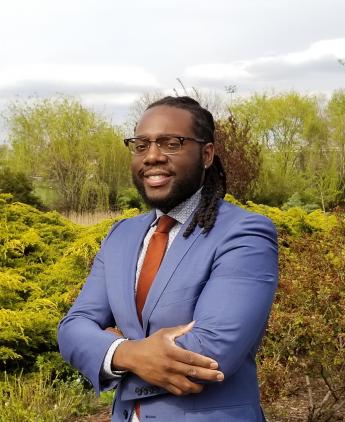Introducing Julius Fleming, Jr.
August 13, 2014

Interview with new faculty member Julius Fleming, Jr.
What is your current project, and what led you to it?
My current book project, Staging Civil Rights: African American Literature, Performance, and Innovation, examines the relationship between performance and African American literature during the modern Civil Rights Movement. My interest in this work began in a seminar entitled “Law, Race, Narrative: The 1950s”—a course I took during my first semester of graduate school with the professor who would ultimately supervise my dissertation. I was particularly interested in the ways in which photography, television, and photojournalism have inflected, and perhaps overdetermined, both popular and intellectual memories of the movement. In the book project, I argue that African American literature, particularly drama and poetry, are key sites to which we can turn to recalibrate conventional accounts of the modern Civil Rights Movement, particularly within the context of race, gender, sexuality, nation, historiography, and modernity. The Movement, I show, was acted out on the “theatrical” stage as creatively as it was in those spaces of embodied activism that “survive” in intellectual and popular memories of the Movement: lunch counters and buses, schools and courtrooms, streets and prisons. This book turns to both well-known and understudied archives, texts, and embodied performances to see and hear the modern Civil Rights Movement anew.
What drew you to the English Department at UMD?
It is tempting to fill this space with a laundry list of what “drew” me to UMD! In short, this department seems to have an amazing fusion of scholarly rigor, collegiality, wonderful students, and excellent resources and facilities—all while being located minutes away from the nation’s capital and in close proximity to major cities and key archival collections. Also, I have long been aware of the strong tradition of African American and African Diaspora literature here at Maryland. It is such an honor to become colleagues with scholars whose work has been so foundational to how the field looks in this very moment.
You’re coming to us from the University of Pennsylvania as a graduate student; tell us a little bit about how this experience has shaped you as a teacher and scholar, and what you hope to bring with you as you start anew here.
I recently completed a Ph.D. in English at the University of Pennsylvania (Penn). At Penn, my advisors modeled the importance of being committed to scholarship and mentorship and to making society accessible to everyone—regardless of their social location. For me, these three areas are central to my being, both inside and outside of the academy. I hope to bring these commitments with me to Maryland, where I have already met many wonderful colleagues who have similar investments. But in these early days of my career, I am as eager to integrate myself into the cultures of this particular department and this particular institution, which I believe will shape me in productive and long-lasting ways.
What occupies your time and interests when you aren’t teaching and researching?
When I am not teaching and researching, I love traveling, spending time with family and friends, and fresh water fishing. I am also a former drum major and tuba and baritone player. So I have a soft spot for music and dance.
What advice would you give to graduate students?
I would advise graduate students to remain curious, and to root their laboring—their thinking, their writing, their theorizing—in a deep care for what is (or will become) their objects of study. I have found questions to be a stimulus for movement, for freedom, in times of intellectual stasis and “burnout,” which seem to be inevitable when producing new knowledge.


